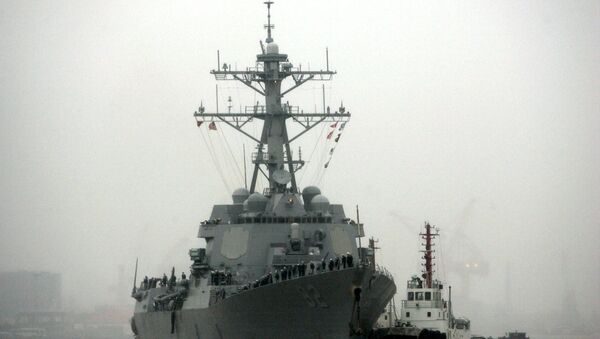"Today, Chinese and US military planners and policymakers likely agree on the correlation of forces in the western Pacific. But on current trends, that agreement will change to disagreement, greatly increasing the danger of conflict," he asserted.
It all comes down to military capabilities, both real and perceived.
"Whether decision-makers in either Washington or Beijing are willing to risk military escalation will depend on the confidence they have in various war-fighting concepts, along with the troops and equipment that would execute them," Haddick explained.
The defense and security analyst mentioned five such concepts, which have not been tested in a real battle before. These include China's reconnaissance capabilities, the defense capabilities of US aircraft carriers deployed to the theater of operation and Beijing's ability to neutralize US bases in Japan, South Korea and Guam with a precision ballistic and cruise missile strike.
When it comes to jamming satellites, China will have an advantage since the hypothetical conflict will take place in its neighborhood, however geography in itself will not be a game-changer.
"If both sides disrupted each other's satellite networks, China would have an easier time reconstituting airborne surveillance and communications relay networks to support a campaign in its home region. On the other hand, the US alliance system in the region would be a major asset and would be especially useful for supporting and reconstituting reconnaissance and communications," Haddick noted.
"In spite of budgets pressures in recent years, the Pentagon has consistently expanded its cyber capacities. It built a national cyber test range where it now regularly conducts force-on-force cyber combat simulations and training," the analyst detailed.
Taking these concepts and the increasing unpredictability of a potential conflict into account, one would think that the US would refrain from provoking Beijing. Sadly, this is not what is happening.

Washington is apparently getting ready for a controversial second freedom of navigation operation in the South China Sea, which Beijing views as a violation of its sovereignty. The move will necessarily contribute to a buildup in tensions between the two global powers in Asia.




